A Japanese scientist named Yoshinori Ohsumi discovered a nutrition principle that helps us stay young and healthy. It was so groundbreaking that Ohsumi received the Nobel Prize in Physiology or Medicine in 2016.
When we starve for a while, cells recycle everything that is old and useless and it becomes young. This process is called autophagy. Here is a system to help you use this process to your advantage. You just need to change a diet habit.
We have studied the different types of interval fasting and has chosen the simplest and safest diet plan that will start the autophagy process and keep you young and fit.
What Is A Diet Window?
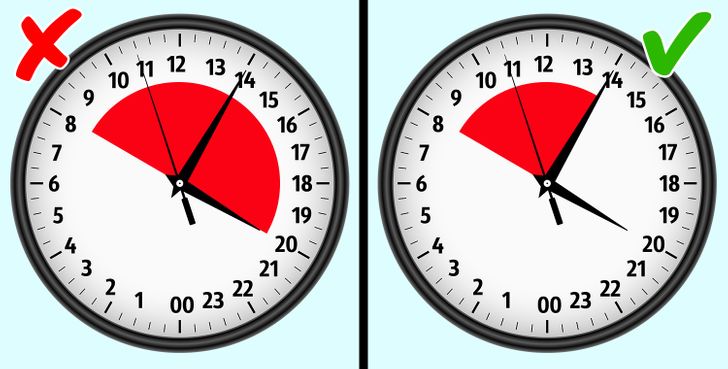
The time we eat is called the diet window. Someone who wakes up at 7 A.M. And has breakfast in an hour opens this window at 8 A.M. If they have dinner between 8 P.M. and 10 P.M., this window is 12-14 hours every day.
Before, people believed that they should eat more often, but in small amounts, because otherwise the body would store fat.
According to surveys carried out in 2017, those who eat from 8 A.M. to 8 P.M. are less healthy than those who eat from 8 A.M. to 2 P.M. When the diet window is narrower, the risk of diabetes, anemia, or obesity is lower.
What Happens If You Narrow Down Your Eating Window?
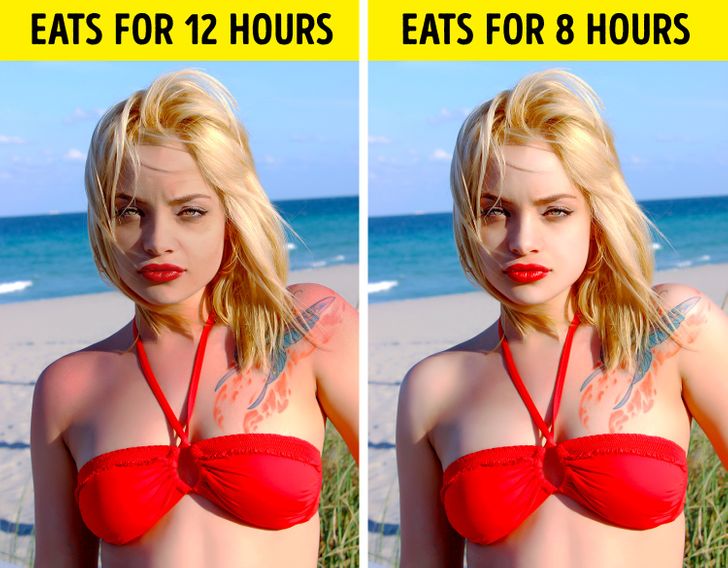
There are many studies on the relationship between shortening the diet window and cholesterol, blood sugar, appetite, and weight levels. In 2017, scientists tested their ideas on people and shortened the eating windows to 12, 8, 6, or 4 hours.
All the people ate the same as usual, without choosing special foods. The number of calories in the control groups was the same.
Time restriction helps you lose weight. This is because the body burns more fat at night and the feeling of hunger decreases, as does the amount of energy expended.
The small metabolic window is good for general health for the following reasons:
- Increases protection against ultraviolet rays, skin cancer, and aging.
- Lowers the risk of breast cancer.
- Lowers blood pressure.
- Lowers the risk of heart disease.
- It enhances sleep quality.
Why Is The Time Of Eating So Important?
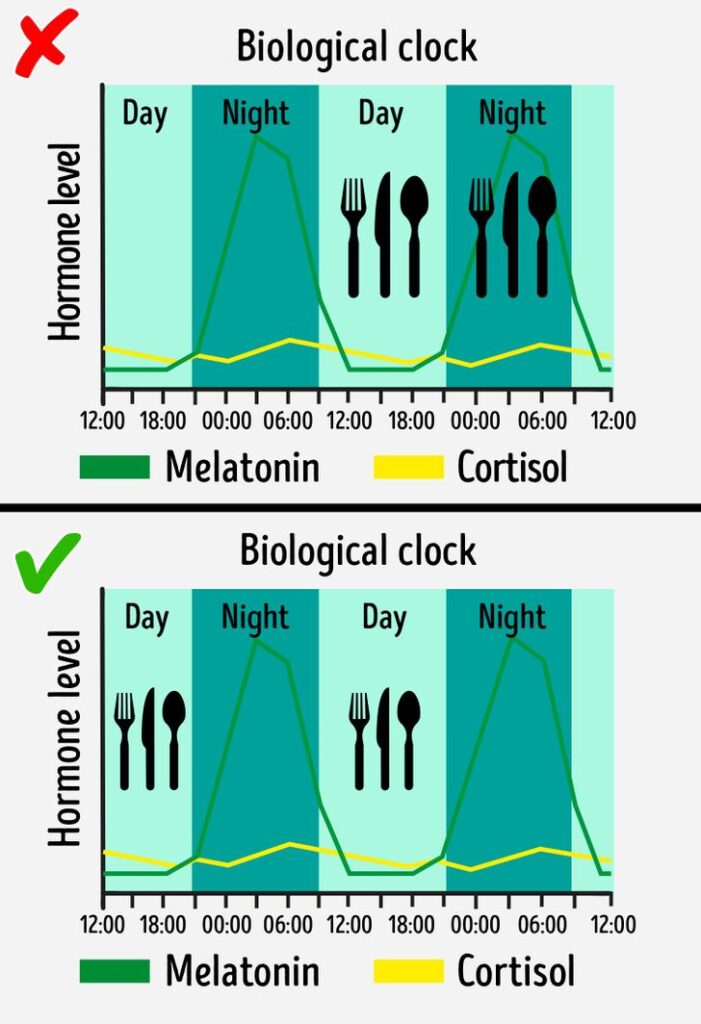
It is important not only to reduce the diet window but also to choose the right time to eat. Each has its own circadian rhythms: the biological clock connected to the change of day and night.
Cortisol production begins in the morning and we have energy and appetite. At night, melatonin is produced, which means that the body is preparing for sleep and slows down internal processes, including digestion.
- If you eat at night, the biological clock loses its rhythm.
- You are tired in the morning, which means your cortisol level is low.
- During the day, the body wakes up.
- At night, if the cortisol level rises, we are active and hungry, although the body needs to sleep.
- As a result, the risk of diabetes, obesity and, depression increases.
How To Build Your Schedule
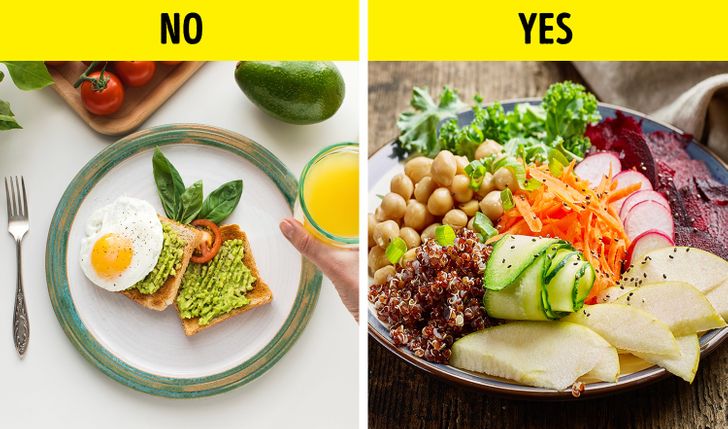
To have the correct biological program, you must:
- Wake up from 6 A.M. to 7 A.M. or when it’s light outside.
- Eat breakfast 30 to 60 minutes after waking up.
- Start working 2-3 hours after waking up.
- Eat more for breakfast than lunch.
- Reduce the diet window from 6 to 8 hours without changing the number of calories.
Scientists found that those who chose a larger breakfast and a smaller lunch lost weight faster than those who chose the opposite.
The 9-hour window is an approximate schedule to follow: Wake up at 7 A.M., then have a good breakfast at 8 a.m., eat less at noon, and after that, eat dinner at 4 a.m. And if you can, don’t eat dinner.
How To Fight The Hunger
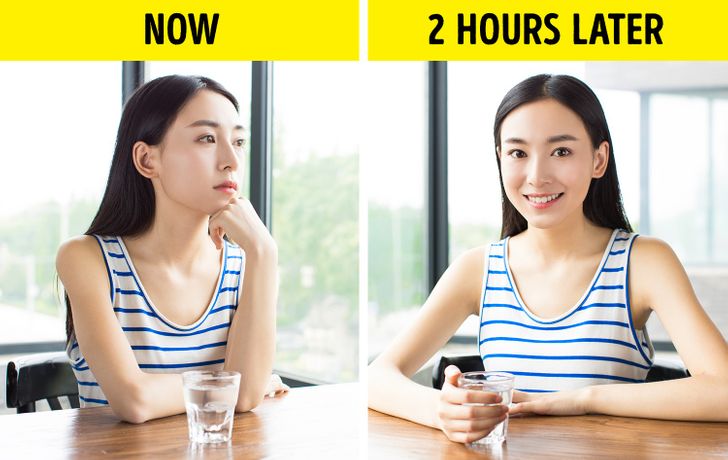
Of course, many people worry about fighting hunger throughout the night. Scientists have also studied this phenomenon. It turns out that the hunger hormone is related to our circadian rhythms. The level of hormones peaks in the blood at 8 A.M., 1 P.M., and 7 P.M.
After each peak, it does not matter if the person ate something or just drank tea, 2 hours later the hormonal flow stops. This means that you should not rely on the feeling of hunger that makes you eat every three hours.
Scientists say that over time, the body gets used to taking long breaks between meals and the feeling of hunger will weaken. And if you eat more often, the hunger will be stronger.
It can be very difficult to narrow the diet window at first. For the first few days, you will feel like you can eat an elephant after 7pm! You can overcome this phase by eating vegetables and fruits.
A week later, your body will get used to it, your appetite will decrease, your sleep will improve, and your mood will improve in the morning.
As you can see, there is nothing really difficult about this diet plan. This is what to do:
Count how many hours your diet period is (if breakfast is at 8:00 AM and dinner is at 8:00 PM, the diet period is 12 hours).
Narrow your window from 6-8 hours, and change it in the morning (for example, from 8 am to 2 pm).
Don’t count the calories! After 1-2 weeks your body will get used to this and you will feel good in the morning.
Do you want to experience this feeding schedule? If so, let us know what you think in the comment section below!
Preview photo credit pixabay.com, pixabay.com


